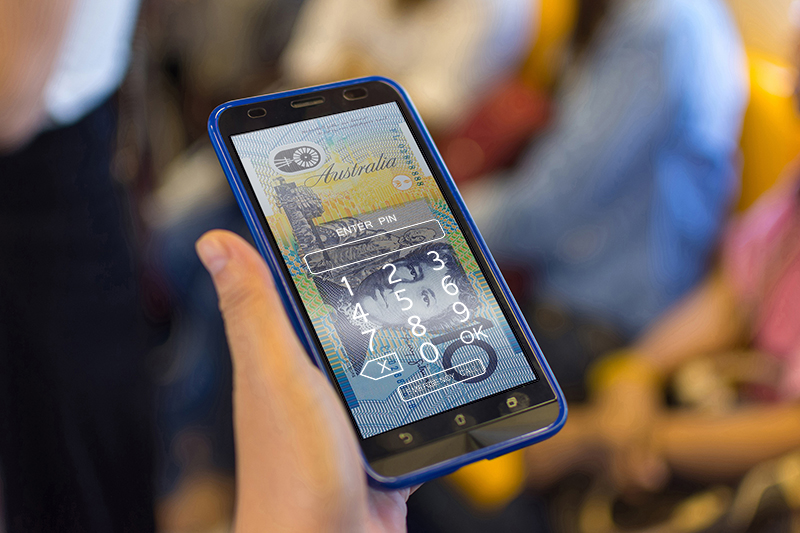- Details
In September the ACCC commenced a broad study into the telecommunications market and the likely developments over the next 5 years. It asked a range of questions about the market to understand if there are any potential issues that will negatively affect consumers. This included questions such as what information would be beneficial to consumers in choosing products, whether competition is working in the voice and broadband service market and whether there are issues with emerging technologies and services.
- Details
The summary below outlines ACCAN's activities from 1 June, 2016 to 31 August, 2016.
- Details
 The Australian mobile network providers have all announced the switch off of their 2G networks:
The Australian mobile network providers have all announced the switch off of their 2G networks:
- Optus’ 2G network will switch off from 3 April, 2017
- Vodafone’s 2G network will switch off on 30 September, 2017
- Telstra’s 2G network was switched off on 1 December, 2016
This article has information for consumers using 2G services on the Optus and Vodafone networks.
Read more: 2G network switch offs – what you need to know
Write comment (2 Comments)- Details
 A major report into telecommunications affordability today launched jointly by the Australian Communications Consumer Action Network (ACCAN) and the South Australian Council of Social Service (SACOSS) highlights concerns about low-income consumers in staying connected to telecommunications services.
A major report into telecommunications affordability today launched jointly by the Australian Communications Consumer Action Network (ACCAN) and the South Australian Council of Social Service (SACOSS) highlights concerns about low-income consumers in staying connected to telecommunications services.
The report, Connectivity Costs: Telecommunications Affordability for Low-Income Australians, which was based on a survey of over 500 Centrelink recipients and low-income Health Care Card holders, as well as a series of focus groups, found that:
- 66 per cent of respondents rated telecommunications among the five most important factors in their household budget; but
- 62 per cent reported difficulty paying, having to cut back or that they had stopped using one or more telecommunications services for financial reasons in the last 12 months.
Read more: Telecommunications affordability report shows those on low incomes missing out
- Details
In 2016, the Mobile Premium Services (MPS) Code is being reviewed. Mobile Premium Services (MPS) are information and entertainment services that deliver various forms of content to your mobile phone, and are charged to your phone account. The MPS Code aims to safeguard consumers from an industry which has a history of poor practice.
Market changes in the last year mean that consumers are able to buy more products in new ways, and charge them to their phone bill. As a result, ACCAN considers that the Code should be updated so that it adequately protects consumers.
- Details
In May 2015, ACCAN commissioned Galaxy Research to complete a survey of consumers regarding telco and ISP complaints. The survey found that 46 per cent of telco consumers reported having a problem with their phone or internet provider in the last year, representing more than 8.5 million Australians.
According to the survey, around one third of respondents (38 per cent) who had a problem with their phone or internet service, complained to their provider and were dissatisfied with the response from the telco. However, only nine per cent of these consumers escalated their complaint to the TIO suggesting that phone and internet providers have not improved the proportion of complaints that are resolved.
- Details
Competition law is critical so that companies can offer high quality of service at the lowest possible price. There are currently two sets of laws that cover competition in the telecommunications industry – one set is general, and the other telco industry specific. The Department of Communications and the Arts is looking at whether the industry specific rules are needed following the adoption of reforms proposed by the Harper Review in 2014.
ACCAN supports removing any overlap as long as this does not cause any detriment to consumers.
Read more: Telecommunications anti-competitive conduct laws inquiry
- Details
In a speech at the CommsDay Melbourne Congress 2016, ACCAN CEO, Teresa Corbin, outlined eight major priority areas for ACCAN in 2016-17. The consumer centred priorities relate to ACCAN’s core focus area of achieving affordable, available and accessible communications products and services for all Australians.
As an organisation, ACCAN represents all residential consumers and small businesses, including not-for-profit organisations. Each policy priority aims to address a segment of the market that is not working for a group or groups within Australia.
- Details
 Many vital services and equipment use telecommunications infrastructure to work, such as telephone and voice services, internet, disability equipment (tele-typewriters), fax machines, medical alarms, security alarms, EFTPOS machines and emergency elevator phones.
Many vital services and equipment use telecommunications infrastructure to work, such as telephone and voice services, internet, disability equipment (tele-typewriters), fax machines, medical alarms, security alarms, EFTPOS machines and emergency elevator phones.
These services and equipment may be affected in the switch over to the National Broadband Network (NBN).
Read more: NBN – not just about internet services!
Write comment (0 Comments)- Details
The ACCAN Annual General Meeting was held in Sydney on Thursday, 15 September, 2016. At the meeting the following three candidates were elected to the Board:
- Sarah Wilson
- Dean Barton-Smith
- Nadia Moffatt
Congratulations to returning director, Dean, and a warm welcome to Sarah and Nadia who are joining the ACCAN Board for the first time.
Read more: Results of ACCAN Board Election
Write comment (0 Comments)- Details
The Australian Communications Consumer Action Network (ACCAN) has launched its ‘Get Connected’ consumer resource which includes a mapping tool and a series of useful steps for consumers who are struggling to get an ADSL connection while they are waiting for NBN to arrive in their area. Issues accessing ADSL services have become a common complaint for consumers, particularly those who move into new areas.
The mapping tool helps consumers to understand the reasons that may be preventing them from getting an ADSL service. For example, if there are few ports available at the local exchange, if the neighbourhood is too far from an exchange or if the exchange is not ADSL enabled. The NBN will be connecting all areas and offering fast broadband connections for consumers. However, some consumers may be waiting months or years for the NBN to reach them. This mapping tool and accompanying useful steps will help them to make a decision about what services would meet their needs in the short to medium term.
- Details
ACCAN’s 2016 National Conference, ACCANect: Equipping Consumers to Stay Connected, kicks off this morning with a focus on empowering consumers to get and stay connected to the phone and broadband services they need. Over two days the event will cover a range of topics including digital inclusion, affordability and digital government.
“We’re looking forward to exploring the issues that consumers face in getting connected particularly as our reliance on broadband to access services, education and employment opportunities grows,” said ACCAN CEO, Teresa Corbin. “Over the two days we’ll hear from experts about new research into digital inclusion and affordability. Sessions at the event will feature panel discussions on how we bridge the divide and get everyone connected and will examine barriers to getting connected.”
Read more: ACCANect Conference explores the tools consumers need to get connected
